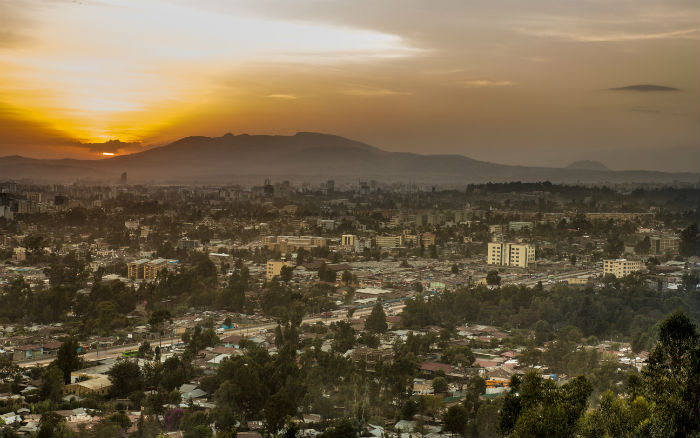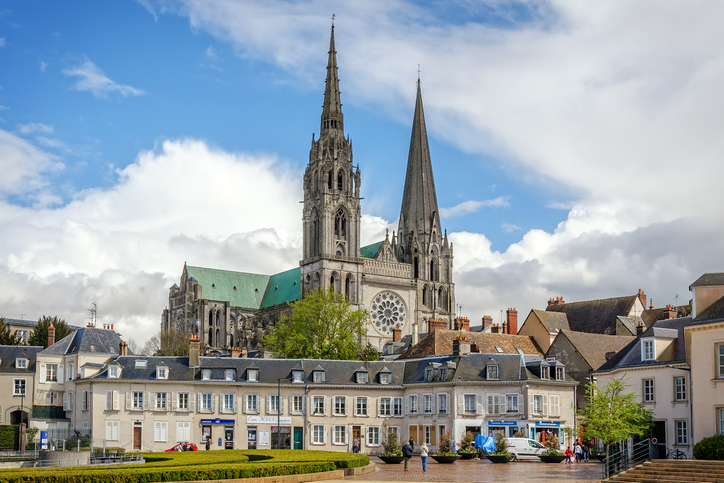Oldest Countries In The World Based On Borders
Different countries across the world have gone through changes throughout their history. There are places that can boast the status of being among the oldest countries in the world, based on their civilization or early human existence. The few things that manage to stay constant despite the changes are the land, people, and culture, which get passed down through generations. This list of the oldest countries in the world, takes into account the territory and presiding culture as deciding factors.
10 Of The Oldest Countries In The World
1. Never Colonised: Ethiopia

An African country that was never colonised by the Europeans, Ethiopia was first established as a country in 980 BC by the D’mt Kingdom. The oldest country in the world uses one of the oldest alphabets in the world called the Ge’ez script. Ethiopia was also called Abyssinia outside of the country. It is also where one of the oldest denominations, the Ethiopian Orthodox Church, flourished. It was declared as a sovereign state on April 27, 1993. But now a large chunk of their population follows Islam.
2. Oldest Churches And Conquerors: Armenia

The kingdom of Armenia was founded in 330 BC and was called Greater Armenia. Three dynasties that constantly ruled the country till 428 AD were the Orontid, Artaxiad, and Arsacid. Furthermore, it went on to be included as part of different kingdoms including Byzantine, Persian and Turkish, and this began with Armenia being part of the province of the Achaemenid empire. The country maintained its territory and culture. Armenia is also one of the earliest Christian civilizations known to mankind. One of Armenia’s first churches was built and founded in the fourth century. Yerevan, the present capital city, was founded in 782 BC.
Also read: Visit The Stunning States That Emerged After The Collapse Of The Soviet Union
3. Stayed ‘In Tact’ For A Millennium: Portugal

Portugal has maintained its border for around 1000 years. The country established its identity very early and is the oldest nation-state in the Iberian Peninsula. Situated next to the Atlantic Ocean, Portugal has its fair share of discoveries. Portuguese explorers like Vasco da Gama set out early as the 15th century for India. Parts of Brazil, Africa, and Asia were colonised by the Portuguese in the 16th century. There are many suggestions of the Celtic Lusitani entering the Peninsula and settling in the 1st millennium BCE. These Lusitani tribes were constantly at war with the Romans. As per legend, the ancient Roman warrior Ulysses had founded the country. The independent kingdom of Portugal was formed in 1143. In 1940, the country’s monarchy was replaced with democracy after a revolution. There was also a peaceful coup in 1947, and a bloodless revolution led to the introduction of more democratic reforms in the country. Portugal’s territory, people, language, and national symbols were established very early and continue to this date.
Also See: The historical heritage of Portugal
4. Country Of Legends And Technology: Japan

One of the oldest countries in the world, Japan is known for its recovery and rapid development since the devastation of World War II. Under the Yamato court, political unification occurred as early as the 4th and 5th centuries. But Chinese records mentioned Japan even in the first century BCE. The country more or less maintained its territory in the Japanese archipelago but the kingdoms and emperors have changed. The people however have remained the same and they still have an emperor called Naruhito since 2019. According to legend the Emperor Jimmu, the first Japanese emperor who was the founder of the imperial dynasty, was believed to be a descendent of the sun goddess Amaterasu.
Also See: The historical heritage of Japan
5. Four Millenniums Of History: China

China’s culture dates back 4000 years. The first records of a Chinese state were during the Shang Dynasty in 1700-1046 BC. Although the first dynasty that ruled the country was the Xia dynasty from 2070 BC to 1600 BC. The central parts of the country were later united in 221-206 BC under the rule of Emperor Qin Shihuangdi. The country went through different rulers, under European and Japanese occupation, but the country’s system changed from monarchy to empire to republic. Further in 206 to 220 BC was a crucial time that contributed many cultural and social factors to the world, like Confucianism, Chinese Buddhism, art, dance, music, and poetry.
Also Read: Ancient temples in China you must visit
6. Of Ancient Kingdoms And Hieroglyphs: Egypt

Egyptian borders went through different changes but mostly maintained their original territories. Home to hieroglyphs, the second oldest writing system in the world, the first Egyptian kingdom was formed in 3150, in the fourth millennium BC by King Menes. The country also underwent multiple rulers under the Macedonian dynasty, Roman, Ottoman, Byzantium, Arab, and more. The country’s geographical changes included displacement of major cities and in 33 AD Egyptian religions were displaced by Christianity, but the original country remained largely the same.
Also See: Learn about the historical heritage of Egypt
7. World’s First Democratic System: Greece

It’s one of the oldest civilizations in the world, but the borders have changed over time. Greece has the largest coastline in Europe, and has 2000 islands, of which only 170 are inhabited. In 508 BC, Athens had the world’s first democratic system. Dating back to the 12th century BC, the country was ruled by the Roman, Byzantine Empire, and Ottoman Turks. It was more of a civilization than a country, but its culture lasted centuries and its influences are very much present even today. In 1832, Greece became an independent kingdom that has the most similarities with the modern-day country.
Also Read: 27 of the best things to do in Greece
8. One Of Napoleon’s Allies: San Marino

One of the smallest countries in Europe, San Marino also happens to be one of the oldest countries in the world. The country is surrounded by Italy and is believed to be founded on Mount Titano in 301 AD by a Christian stonemason called Marinus who was seeking sanctuary from religious persecution. In the late 16th century, its constitution was written in Latin. In 1243, the first Captain’s Regents were appointed who acted as co-heads of the state. A statute of 1600 serves as a provider to the parliamentary government. Some of the initial governing documents are still implemented. The country has not gone under significant geographical and political changes. It went through some political disturbance when Napoleon tried to invade, but the country soon became his ally.
9. A Country Blessed By Nature: Iran

Iran has always been an important city, being an integral part of Persia, and with vast natural resources like petroleum. Iranian culture and food can be identified as far back as 550 BC in the Achaemenid period. Iran has gone through many changes playing significant roles in the Persian, Parthians, Arabs, Mongols, and other empires. Further Britain and Russia occupied the country in 1941. After the Iranian revolution, modern-day Iran was established.
Also Read: 16 wonderful cultural sites in Iran that you must see
10. Culture That Receives Applause From Everywhere: France

Around the 13th century, France emerged as a kingdom with territorial similarities to the present day country. In the Middle Ages, France was invaded by many tribes and groups including the Vikings. 18th century politics and the class divide between the nobility and the bourgeoisie enraged the public. Socio-economic factors like increase in prices, strict commerce regulations and other reasons inspired a revolution. Moreover, it was the faith that after removing the holy status of the monarchy, the public would establish their own versions of ‘self’ and ‘public good’ and redesign the workings of the state. The French Revolution of 1789 is famous in world history. This led to the foundation of the First Republic. 1815 marked the year where monarchy was re-established with Napoleon’s defeat at Waterloo. French principles of giving authority to the state and stating it to be responsible for their freedom were adopted in different countries across the world. Till this day, French ideologies, art, philosophy, sociology, and science can be seen in different parts of the world.
Also Read: 18 underrated towns you have to visit in France
Know Your Community
Oldest countries in the world have vibrant cultures that have been passed down through generations. While it is important to adapt to modern times, staying in touch with your roots and preserving your culture is equally crucial.
from Travel.Earth https://ift.tt/2HenGQz

0 Comments